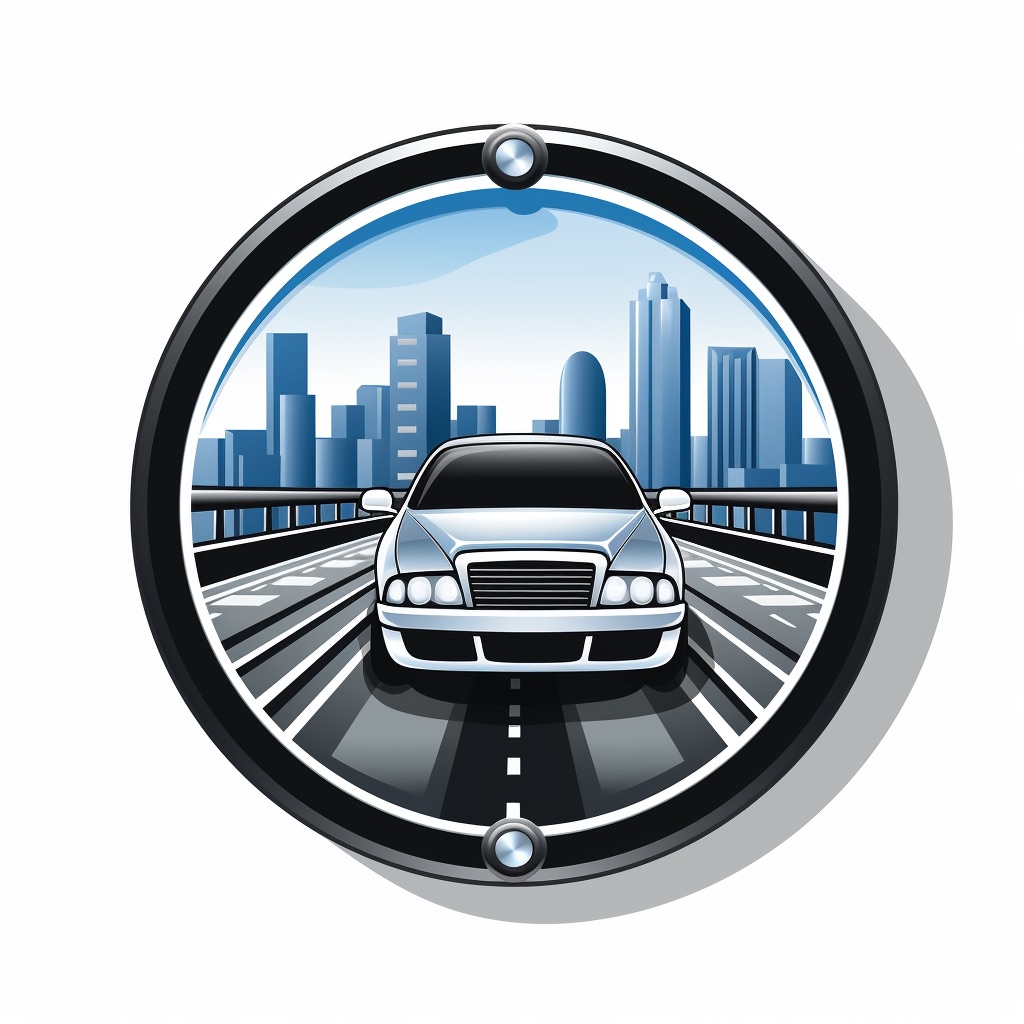Traffic violations are a common occurrence on roadways across the country. From speeding to running red lights, these offenses can result in serious consequences for drivers who break the law. Today, we will explore whether or not traffic violations are considered crimes, the types of violations that exist, and the potential consequences for those who commit them.
Traffic Violation
A traffic violation is an offense committed by a driver that violates one or more rules of the road. These rules can vary depending on the state or jurisdiction but generally include things like speeding, failure to yield, running red lights or stop signs, and driving under the influence. Traffic violations can be broken down into two categories: moving violations and non-moving violations. Moving violations refer to offenses where a vehicle is in motion at the time of the violation. Examples include speeding, reckless driving, and failure to signal when turning. On the other hand, non-moving violations occur when a vehicle is parked or not in motion at the time of the offense. Examples include parking in front of fire hydrants or expired registration tags.
Traffic Laws in Ensuring Public Safety
Traffic laws exist to ensure public safety on roadways across our country. When drivers obey these laws and regulations while operating their vehicles safely and responsibly it can help reduce accidents and prevent injuries on our roads. Traffic law enforcement helps prevent dangerous behavior such as drunk driving which directly contribute to injuries caused by motor vehicle crashes each year in our nation particularly among young people from 15-20 years old according to studies made by CDC (Centers for Disease Control & Prevention). Understanding what constitutes as a traffic violation is crucial as it plays an important role in ensuring public safety on our roads. All drivers need to follow the rules of the road and take responsibility for their actions to prevent accidents and injuries.

Types of Traffic Violations
Traffic violations occur when drivers fail to follow the laws and regulations that have been put in place to ensure public safety. While there are a variety of traffic violations, they can generally be classified into two categories: moving violations and non-moving violations.
Moving Violations
Moving violations are traffic offenses that involve the violation of laws related to the operation of a vehicle while it is in motion. These types of violations often directly threaten other drivers, pedestrians, and passengers on the road. Some common examples of moving violations include: – Speeding: Driving above the posted speed limit is one of the most common moving violations. Not only does it increase the risk for accidents, but it can also result in large fines and points on your driver’s license. Reckless driving happen when a driver operates their vehicle with a wilful or wanton disregard for the safety of others on the road. Reckless driving can include actions such as weaving through traffic, passing illegally, and even using your vehicle as a weapon. – Running red lights or stop signs: Failing to stop at red lights or stop signs endangers other drivers who may assume it is safe to proceed when they have right-of-way. This type of offense can lead to serious accidents with potentially fatal consequences.
Non-Moving Violations
Non-moving violations refer to offenses that are not related to the operation of a vehicle while it is in motion. These types of offenses typically result in less severe penalties than moving violations since they do not pose an immediate danger on the roadways. However, repeated non-moving violations can still lead to increased fines or even suspension or revocation of your driver’s license.
Some common examples include:
- Parking tickets: Parking in areas designated for emergency vehicles or accessible parking spaces without proper permits can result in expensive fines.
- Expired registration or license plates: Driving with expired registration or license plates can result in points on your driver’s license and the possibility of having your vehicle impounded.
- Equipment violations include offenses such as having a broken tail light, missing mirrors, or excessively loud exhaust systems. While these types of violations may not seem serious, they can still result in fines and points on your driver’s license.
Consequences of Traffic Violations
Fines and Penalties
A driver violating a traffic law may be subject to fines and penalties. Fines for traffic violations can range from a few dollars to hundreds or even thousands of dollars based on the severity of the offense. For example, running a red traffic light or speeding may result in a fine of $100-$300, while more serious offenses such as DUI or reckless driving can result in fines over $1,000. In addition to fines, some states impose penalty points on driver’s licenses for certain traffic offenses. These points are used to track an individual’s driving record and can result in license suspension or revocation if too many are accumulated within a certain period of time. For example, in California, if a driver accumulates four or more points within one year, six or more within two years, or eight or more within three years, their license may be suspended.
Points on Driver’s License
When a driver receives a traffic violation ticket for an offense that carries penalty points in their state, those points will be added to their driving record. The number of penalty points assigned varies based on the specific offense committed. For example, speeding might result in one point while reckless driving could add four points. In most states, if you accumulate too many points within a certain period of time (usually 12-24 months), your license will be suspended. Having too many penalty points on your license can lead to increased insurance rates and even suspension or revocation of your license. Some employers may also check your driving record before hiring you for certain jobs requiring you to operate vehicles.
Increased Insurance Rates
Traffic violations come with fines and penalty points and can cause drivers’ insurance rates to increase significantly. Insurance companies often view drivers with multiple traffic violations as higher risk and may increase their rates to reflect this risk. The increase depends on the type of violation, the number of offenses, and the driver’s driving history. For example, a driver with one speeding ticket might see their insurance rates increase by 10%, while a driver with multiple DUIs could see an increase of up to 50% or more. These rate increases can last for several years, even after the violation has been removed from your driving record.
Possible Suspension or Revocation of Driver’s License
In addition to fines, points on your license, and increased insurance rates, some traffic violations can result in suspension or revocation of your driver’s license. Common reasons for suspension include accumulating too many penalty points within a certain period, refusing a breathalyzer test during a DUI stop, or being convicted of certain offenses such as hit-and-run incidents. Suppose your license is suspended or revoked due to traffic violations. In that case, you will typically have to pay fines and complete educational courses related to safe driving practices before you can regain your license. Additionally, some states require drivers with suspended licenses to install an ignition interlock devices on their vehicles as a condition for reinstatement.
Differences Between Traffic Violations and Crimes
Civil Infractions vs. Criminal Offenses
Traffic violations are generally considered civil infractions, meaning they are non-criminal offenses that do not carry the same severity of punishment as criminal offenses. Civil infractions typically result in monetary fines or penalties but do not result in jail time. Examples of civil infractions include speeding, running a red light, and failure to yield. In contrast, crimes are criminal offenses that can carry severe penalties including imprisonment or even death. Crimes include offenses such as murder, theft, and assault. While some traffic violations can lead to criminal charges (such as DUI), most are civil infractions.
Examples of Criminal Traffic Offenses
Driving Under the Influence (DUI)
Driving under the influence is a severe criminal traffic offense that involves operating a motor vehicle while under the influence of drugs (DWI) or alcohol. DUI laws changes from state to state, but typically a driver can be charged with DUI if their blood alcohol content (BAC) is above 0.08%. In some states, enhanced charges and penalties may apply if a driver’s BAC is above 0.15%. DUI charges can have severe consequences, including fines, license suspension or revocation, mandatory ignition interlock devices, and even imprisonment in some cases. Repeat DUI offenders typically face more severe penalties than first-time offenders. Additionally, drivers under the age of 21 may face additional penalties for drunk driving due to their zero-tolerance status. Many organizations work to raise awareness about the dangers of drunk driving and encourage individuals to use alternative transportation options such as designated drivers or ride-sharing services.
Hit and Run Accidents
Hit and run accidents happen when a driver walks away from the scene of an accident without providing contact information or rendering aid to anyone involved in the collision. Hit and run accidents can range in severity from minor fender benders to fatal crashes. In most states, walking away from the scene of an accident is considered a criminal offense regardless of fault or liability. Depending on the circumstances surrounding the incident, hit and run charges can result in fines, license suspension or revocation, community service hours, probation, or even imprisonment. Penalties for hit and run offenses are typically more severe if there are injuries or fatalities involved in the accident. In these cases, drivers may face felony charges and lengthy prison sentences.
Vehicular Manslaughter
Vehicular manslaughter occurs when a driver causes an accident that leads to someone’s death. This can be due to actions such as driving under the influence, reckless driving, or speeding. Vehicular manslaughter is a serious criminal offense that can lead to significant penalties including imprisonment. The specific charges and penalties for vehicular manslaughter vary from state to state, but typically depend on factors such as the driver’s intent, degree of recklessness, and prior criminal history. In some cases, drivers may face enhanced charges if they were committing another crime at the time of the accident (such as fleeing from law enforcement). Vehicular manslaughter cases can be emotionally charged and complex, requiring extensive investigations and expert testimony. Families of victims often work with attorneys to pursue wrongful death claims against responsible parties in civil court.
The Severity of Traffic Violations
While traffic violations are not considered crimes, they are still serious offenses that can have far-reaching consequences. For example, a speeding ticket may seem like a minor inconvenience, but it can result in fines, points on your license, and higher insurance premiums. More serious violations such as DUI or reckless driving can lead to criminal charges and even imprisonment. Drivers need to understand that their behavior behind the wheel can have significant consequences for themselves and others on the roadways. When drivers operate a vehicle recklessly or under the influence of drugs or alcohol, they put everyone else at risk of injury or death. By taking traffic laws seriously and driving responsibly, individuals can help ensure public safety and prevent tragic accidents from occurring.
Taking Responsibility for Your Actions
Drivers who receive a traffic violation should take responsibility for their actions and learn from their mistakes. This means paying fines promptly and completing required courses or community service hours. It also means being mindful of one’s behavior on the roadways going forward to avoid future violations. In addition to taking responsibility for individual actions, it is also important to hold other drivers accountable when they engage in dangerous behavior on the roads. This may mean reporting aggressive driving or DUI incidents to law enforcement officials or speaking out against dangerous driving practices in your community.

